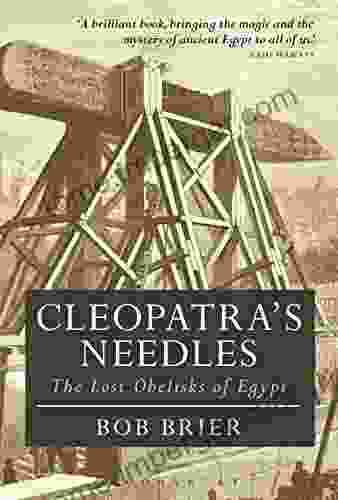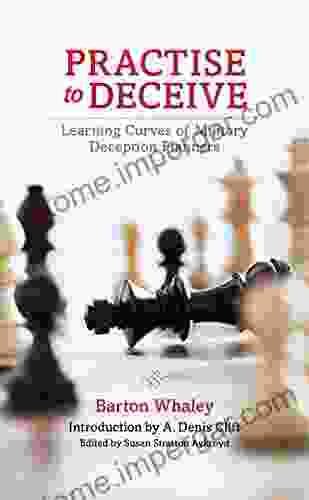Learning Curves of Military Deception Planners

In the ever-evolving landscape of modern warfare, deception has emerged as a formidable weapon in the arsenal of military strategists. The ability to outsmart, mislead, and manipulate adversaries can significantly shape the course of battles and conflicts. However, mastering the art of military deception is no easy feat. It requires a deep understanding of human psychology, strategic thinking, and a relentless pursuit of knowledge. This article delves into the intricate learning curves faced by military deception planners, exploring the challenges and opportunities that shape their journey towards becoming proficient practitioners of this enigmatic craft.
Cognitive Psychology and Deception Planning
At the heart of military deception lies the intricate interplay between cognitive psychology and deception planning. Deception planners must possess a profound understanding of human cognition, particularly in the areas of perception, memory, and decision-making. They must be able to anticipate how adversaries will process and interpret information, and use this knowledge to craft deceptive narratives that are both believable and effective.
4.8 out of 5
| Language | : | English |
| File size | : | 2674 KB |
| Text-to-Speech | : | Enabled |
| Screen Reader | : | Supported |
| Enhanced typesetting | : | Enabled |
| Word Wise | : | Enabled |
| Print length | : | 256 pages |
The learning curve in this domain is steep. Deception planners must master a range of cognitive principles, including:
- Attention and selective perception: Understanding how adversaries focus on specific information and ignore others.
- Memory and cognitive biases: Recognizing that memory is fallible and prone to manipulation, and exploiting these biases to influence perceptions.
- Heuristics and decision-making: Identifying the mental shortcuts used by adversaries in decision-making processes, and using this knowledge to shape their choices.
Strategic Thinking and Deception Planning
In addition to cognitive psychology, strategic thinking is paramount for effective deception planning. Deception planners must be able to think critically and creatively, developing complex and multifaceted deception campaigns that align with broader military objectives. They must possess a comprehensive understanding of military strategy, tactics, and operational art, and be able to integrate deception into these plans seamlessly.
The learning curve in strategic thinking for deception planners is characterized by:
- Analysis of adversary capabilities and vulnerabilities: Identifying potential targets for deception, assessing their strengths and weaknesses, and developing strategies to exploit them.
- Development of deception plans: Crafting deceptive narratives, selecting appropriate delivery methods, and coordinating deception activities with other military operations.
- Assessment and refinement of deception plans: Evaluating the effectiveness of deception campaigns, identifying areas for improvement, and adapting plans based on feedback.
The Role of Experience and Practice
While theoretical knowledge is essential, experience and practice play an indispensable role in the learning curve of military deception planners. Hands-on involvement in deception exercises, simulations, and real-world operations provides invaluable opportunities to develop practical skills and refine techniques.
The learning curve associated with experience and practice involves:
- Development of situational awareness: Gaining a deep understanding of the operational environment, adversary capabilities, and potential deception opportunities.
- Refinement of deception techniques: Experimenting with different approaches, evaluating their effectiveness, and adapting based on lessons learned.
- Collaboration and teamwork: Working closely with other deception planners, intelligence analysts, and military personnel to coordinate deception activities effectively.
Continuous Learning and Adaptation
The learning curve of military deception planners is a continuous process. As adversaries evolve their tactics and technologies, deception planners must constantly adapt and refine their own approaches. This requires a commitment to ongoing professional development, research, and experimentation.
The continuous learning curve involves:
- Keeping abreast of advancements in cognitive psychology: Staying informed about the latest research in human cognition and applying these insights to deception planning.
- Studying historical deception campaigns: Analyzing past successes and failures to identify best practices and lessons learned.
- Seeking feedback and mentorship: Establishing relationships with experienced deception planners and seeking their guidance and advice.
The learning curve of military deception planners is a challenging and multifaceted journey that requires a unique blend of cognitive psychology, strategic thinking, experience, and continuous learning. Deception planners must possess a deep understanding of human cognition, the ability to develop complex deception plans, and the practical skills to execute them effectively. Through a relentless pursuit of knowledge and a commitment to excellence, military deception planners become masters of the art of outwitting and misleading adversaries, shaping the course of battles and conflicts in ways that were once unimaginable.
4.8 out of 5
| Language | : | English |
| File size | : | 2674 KB |
| Text-to-Speech | : | Enabled |
| Screen Reader | : | Supported |
| Enhanced typesetting | : | Enabled |
| Word Wise | : | Enabled |
| Print length | : | 256 pages |
Do you want to contribute by writing guest posts on this blog?
Please contact us and send us a resume of previous articles that you have written.
 Book
Book Novel
Novel Page
Page Chapter
Chapter Text
Text Story
Story Genre
Genre Reader
Reader Library
Library Paperback
Paperback E-book
E-book Magazine
Magazine Newspaper
Newspaper Paragraph
Paragraph Sentence
Sentence Bookmark
Bookmark Shelf
Shelf Glossary
Glossary Bibliography
Bibliography Foreword
Foreword Preface
Preface Synopsis
Synopsis Annotation
Annotation Footnote
Footnote Manuscript
Manuscript Scroll
Scroll Codex
Codex Tome
Tome Bestseller
Bestseller Classics
Classics Library card
Library card Narrative
Narrative Biography
Biography Autobiography
Autobiography Memoir
Memoir Reference
Reference Encyclopedia
Encyclopedia Dm Tripson
Dm Tripson Bernard Lefkowitz
Bernard Lefkowitz Bea Koch
Bea Koch Barbara Clark Smith
Barbara Clark Smith Darren Lee
Darren Lee Blake J Harris
Blake J Harris Boaz Anglade
Boaz Anglade Becky Thompson
Becky Thompson Beata Halicka
Beata Halicka Jackie Perry
Jackie Perry Bernard Hellreich Ingram
Bernard Hellreich Ingram Barry B Luokkala
Barry B Luokkala Barry Braverman
Barry Braverman Bill O Neill
Bill O Neill Jonathan Miles
Jonathan Miles Howard L Hartman
Howard L Hartman Barry Magid
Barry Magid Barry Strauss
Barry Strauss Billy Waugh
Billy Waugh Barton E Bernstein
Barton E Bernstein
Light bulbAdvertise smarter! Our strategic ad space ensures maximum exposure. Reserve your spot today!

 Samuel BeckettUnlock the Transformative Power of Humility: Embracing Vulnerability and...
Samuel BeckettUnlock the Transformative Power of Humility: Embracing Vulnerability and...
 Alvin BellHoly Oooff Boff Splatt! Dive into the Subterranean Blue Grotto of Batman '66...
Alvin BellHoly Oooff Boff Splatt! Dive into the Subterranean Blue Grotto of Batman '66... Herman MelvilleFollow ·13.3k
Herman MelvilleFollow ·13.3k Greg FosterFollow ·7.4k
Greg FosterFollow ·7.4k Ian PowellFollow ·14.8k
Ian PowellFollow ·14.8k Fred FosterFollow ·8.6k
Fred FosterFollow ·8.6k Jimmy ButlerFollow ·10.8k
Jimmy ButlerFollow ·10.8k Zachary CoxFollow ·5.4k
Zachary CoxFollow ·5.4k Chinua AchebeFollow ·5.2k
Chinua AchebeFollow ·5.2k Randy HayesFollow ·7.2k
Randy HayesFollow ·7.2k

 Edison Mitchell
Edison MitchellFrench Strategy and Operations in the Great War
An In-Depth Examination of Military Genius ...

 Harvey Hughes
Harvey HughesArts In Health: Designing And Researching Interventions
Delving into the...

 Walt Whitman
Walt WhitmanHealing and Hope for Those with Empty Arms
A Comprehensive Guide for Grieving...

 DeShawn Powell
DeShawn PowellUniversity of Maine Ice Hockey: A Legacy of Frozen Glory
Nestled in the heart of Maine, a state...

 George Hayes
George HayesControl For Aluminum Production And Other Processing...
In today's competitive manufacturing...

 Ben Hayes
Ben HayesThe Lost Obelisks Of Egypt: A Journey into the Depths of...
: The Enduring Allure of Egypt's Ancient...
4.8 out of 5
| Language | : | English |
| File size | : | 2674 KB |
| Text-to-Speech | : | Enabled |
| Screen Reader | : | Supported |
| Enhanced typesetting | : | Enabled |
| Word Wise | : | Enabled |
| Print length | : | 256 pages |








